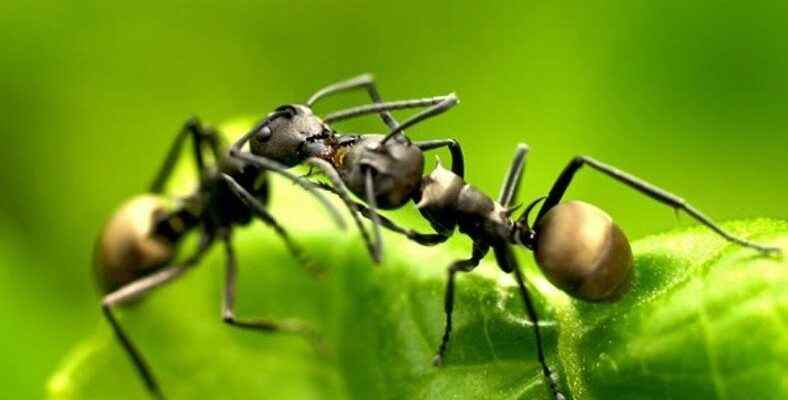A new study has revealed why carpenter ants, a social insect species, kiss.
It turned out that carpenter ants kiss each other to transfer the necessary proteins to ensure the distribution of tasks within the colony. In a previous study, it was determined that social insect species such as fruit flies share their saliva with each other; but the function of these fluids has not been studied in detail. same phenomenon carpenter ants Researchers who decided to study on the ‘you kissed’ revealed.
According to the research, carpenter ants, whose Latin name is ‘Camponotus floridanus’, use the logic of a machine to maintain order. was a single organism it’s working. Specifically, this species, which is frequently seen in the US state of Florida; They exchange their saliva through kissing and each ant in the colony one’s duty enables it to be fulfilled.
The proteins transferred by kissing vary according to the structure and role distribution of the colony.
an evolutionary biologist at the University of Friborg in Switzerland. Ardia LeBoeufHe stated that each ant belonging to this species has two stomachs and that ants use one of these stomachs to digest their food and the other for the liquids they store to share with other members of the colony. This is your second stomach ‘social stomach’ Leboeuf stated that “Exchange of these fluids allows the ants to share food and important proteins that they produce. “ recorded as.
In the research in which the proteins in the social stomach were analyzed; Detected ‘biomarkers’ according to the structure of the colony and the role of individuals. difference proved to be possible. Accordingly, in colonies with young populations, proteins responsible for rapid sugar processing are more dominant; older colonies long life span It was stated that there are more growth-related proteins required for growth.
RELATED NEWS
Thought To Compete: Bacteria Proved To Help Each Other Thrive
In addition to these, the biochemical process, also known as oxidative stress, which reduces the life span of cells in the social stomachs of the ants, who are responsible for taking care of the offspring of the queen ant of the colony. hindering more protein was observed. This means that the ‘dedicated’ members of the colony can transmit ‘special molecules’ to the ants that raise the next generation. Taller makes it live. The researchers concluded that this study is a very important model for understanding the distribution of tasks among animals; however, more research is needed to understand how each protein affects the colony and the ants.
Source :
https://www.indyturk.com/node/438766/bi%CC%87li%CC%87m/yeni-ara%C5%9Ft%C4%B1rma-kar%C4%B1ncalar%C4%B1n-why-%C3 %B6p%C3%BC%C5%9Ft%C3%BC%C4%9F%C3%BCn%C3%BC-reveal-%C3%A7%C4%B1kard%C4%B1
